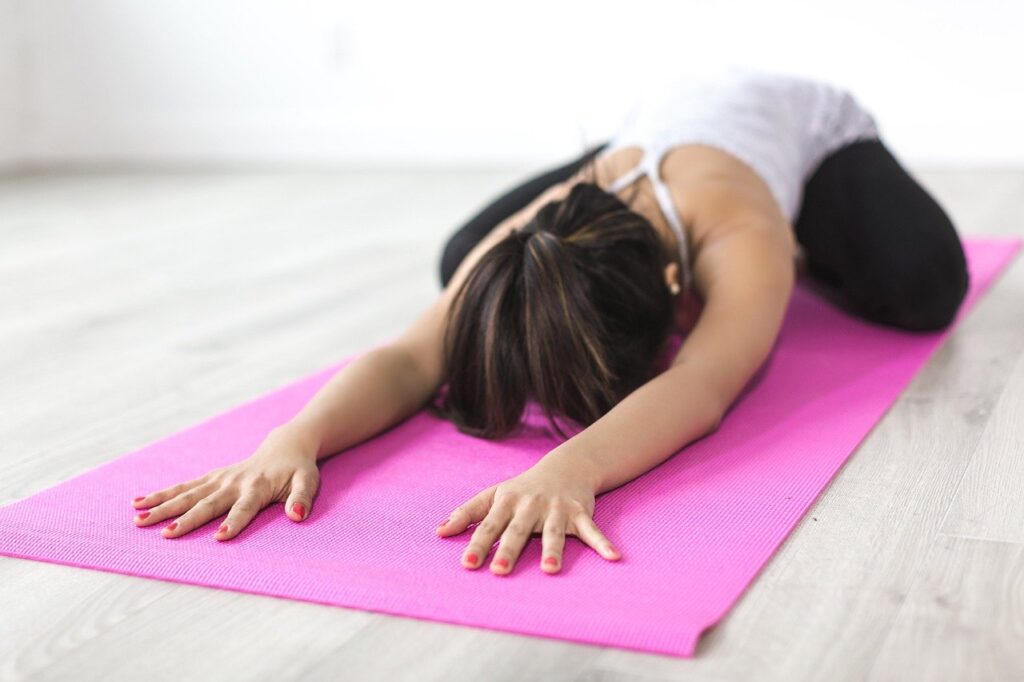Today, more people than ever are interested in improving their way of life, which has led to a boom in the health industry. You can lead a healthier lifestyle in your day-to-day activities by utilising various tools and strategies, some of which may appear straightforward but have a significant impact. As a contemporary society, we are constantly being pulled and pushed in various directions. When there is so much going on, it can be challenging to carve out some time for ourselves to practise self-care. The following are some straightforward approaches to health and wellness that can assist you in getting your day-to-day activities back on track and back on track with your life. Do you wish to lead a lifestyle that is both healthy and happy? To accomplish this objective, what patterns of behaviour should you establish? The following blog post will provide advice on making your goals regarding your health and wellness a reality. These simple actions can go a long way towards helping you live a lifestyle that is better for your health and more productive for your career. Finding healthy habits that can help you structure your life may seem like the least important thing on your list of priorities when life is hectic and chaotic like it often is. But here’s the reality: you require them even more than you think you do. So check out what you’re putting in your body and how often you’re working out if you’ve been feeling off lately and aren’t sure why. You’ll find that these two factors have a significant bearing on the degree to which we are well-rested, happy, and energised daily. Continue reading for some health and wellness routines that can help you organise your life! Finding the time for self-care can be challenging, although maintaining one’s health and wellness is an essential part of everyone’s life. Unfortunately, there are never enough hours in the day to ensure that you are taking care of yourself while also attending to all of your responsibilities towards your work or family. This list includes some simple adjustments you can make to help maintain your health without adding additional time to the amount of time you already spend on yourself. For example, you don’t have to spend hours at the gym or meditate every day. This blog was created to assist you in identifying some of the most helpful health and wellness routines that can be used to structure your life. For your body to function properly, you must engage in regular physical activity, get adequate sleep, and eat nutritious food. These are just a few of the suggestions we will provide for you regarding integrating these healthy behaviours into your day-to-day activities. Let’s get started!
Ways to Structure Your Days
1. Plan Ahead
Be purposeful when making your health a priority in your life. For instance, when preparing a nutritious dinner, consider making a larger quantity to save some for lunch the following day. As a result, you will receive the same amount of nutrition, and as a bonus, you will save money. Fill up a water bottle and get your workout clothes ready the night before if you want to exercise in the morning. It will make it much simpler for you to get up and move when the time comes. Create space in your schedule to take a few deep breaths and unwind. It is important to plan and find ways to make it simpler for yourself to make the right decisions.
2. Wake Up Early
Getting up early is the most important factor in determining how productive I will be throughout the day. It’s been said that “your 5-9 determines your 9-5,” and I’ve heard that too. It couldn’t be more accurate in my eyes. On a typical day, I get out of bed at 5:30 in the morning, and by the time 7 o’clock rolls around, I have already finished my workout and feel completely revitalised. When you finish your workout while everyone else is asleep, it’s the most satisfying feeling. But, because only some people are like this, you should find out what works best for you. It is much simpler for me to get back into the swing of things on Monday morning if I have spent the weekend getting up early (okay, maybe not at 5:30 a.m., but at 7 a.m.). If you make taking care of your health one of the first things you do every day, it will soon become second nature.
3. Get Moving!
It is very important to put in the effort to do some research and figure out which kind of physical activity you enjoy most. For instance, I spent years attending regular gyms and fitness clubs, never admitting that I HATED it. However, I eventually discovered a workout facility that offers group classes (mostly for women). And the repercussions were felt everywhere. I used to hate working out, but now it’s one of my favourite things to do, and I’ve made some amazing friends through the gym community. Discover what works best for you, and don’t be afraid to try new things when it comes to activities. The average fitness centre is only appropriate for some.
4. Get Your Nutrients
To get things started, I suggest getting a blood test to determine whether or not you are getting the appropriate nutrients. I did, and it surprised me that I needed to improve in some essential ones, although I consider myself to be someone who maintains a very healthy diet. Therefore, first thing in the morning, I have this protein shake mixed with an iron supplement, and I also take supplements of vitamin D, B-12, and Zync. As a direct consequence of this, I am no longer lacking in any nutrients, and I enjoy the satisfying knowledge that my body is receiving what it requires.
5. Stay Hydrated
Consume as much water as possible, and avoid soda, pop, and other sugary drinks. For example, I used to drink 4-5 cans of Diet Coke daily (yes, you read that right!). Ever since I kicked that addiction in 2010 and now only drink water (except the occasional glass of wine), I feel a WORLD of a difference (and I’ve also shed a few pounds)!
6. Eat Healthily
Consider your options before you eat. I emphasize eating whole foods and following a plant-based diet, which serves me very well. But the most important thing is to figure out what works best for you, which might mean avoiding meat once a week and building up from there. A few other things that I recommend are as follows:
- You should stay away from fried and processed foods.
- No fast food allowed (places with drive-throughs). However, I will continue to make occasional trips to the local sub shop.
- Reduce the number of simple carbohydrates (white bread, chips, cookies, pastries, white rice, etc.) you consume and focus more on complex carbohydrates (vegetables, brown rice, potatoes, beans, fruit, whole grains, etc.).
- When at all possible, stay away from oils. When I cook vegetables, for instance, I swap out the typical use of oil for broth made from unsalted vegetables.
- Snack on nutritious foods like fresh fruits and vegetables, celery with peanut butter, nuts, rice crackers, and celery with hummus. Other options include rice crackers and nuts.
- Reduce your consumption of sugar as much as you possibly can.
- In addition, make sure you get plenty of water to drink.
7. Be Active
Get up and move around as much as possible if you spend most of your day sitting at a desk. Take the stairs instead of the elevator, go for walks during your lunch break, and know that every little bit helps. When looking for a parking spot at the mall, choose one far from the entrance. Being physically active is an essential component of maintaining your health and makes you feel better overall. Therefore, make it a goal to engage in some form of physical activity daily, such as going for a walk, running, participating in a workout class, swimming, or going to the gym.
8. Relax And Connect
It would be best if you made time in your schedule to unwind and relax. In the evening, my husband and I enjoy kicking back in front of the television for a couple of hours while I prepare dinner (something that I find very relaxing). It is our downtime, and we frequently pause the TV to talk about the events of the day and make an effort to connect (and our cat Chloe). Spend some time doing something you enjoy, like reading a book or going for a walk. Also, make it a point to put your phone away at least an hour or two before bedtime so that your mind has time to relax and wind down before you go to sleep.
9. Meditate
Some people find the idea of meditation to be unsettling at first, but it is common knowledge that meditation helps reduce stress and boost overall happiness. It is still a work in progress, and I’m making a concerted effort to carve out more time for meditation and to focus on the here and now in my daily life. So stay tuned for future posts where I will figure out how to do it easily and make sure to take advantage of them! It is a godsend for people who suffer from anxiety. Every day at the same time, I have a timer on my phone that will tell me, “it’s time to meditate.” It’s a helpful reminder to take things slower, although I don’t always pay attention to what’s being said.
10. Get Your Sleep!
The significance of sleep to the human body has been repeatedly demonstrated by research. We must get the amount of sleep we need each night to maintain our health and function at our highest level while awake. Maintaining a consistent sleep schedule will help your body feel more balanced, and you will have more energy. It would help if you did this.
Morning Habits to Start Your Day Off Right
Your daily habits in the morning serve as a template for the rest of the day. The following are ten easy habits that you can incorporate into your morning routine to make it more productive and increase your chances of succeeding. Have you ever noticed that when you start your morning in a flurry—by snoozing your alarm, skipping breakfast, and shoving yourself out the door, for example—the rest of your day seems to reflect that same chaotic mood as well? How you start your morning will set the tone for the rest of your day; therefore, it is time to begin planning appropriately. When you get into the habit of engaging in positive behaviours first thing in the morning, you put yourself in a position to have a productive day. You operate under habits (both good and bad), whether you are aware of them or not; habits are an integral part of your daily existence and operate whether or not you are conscious of them. Becoming intentional with developing a healthy habit is a component of the process. However, most people develop habits because they are simple or because doing so puts them on a path with the least effort. If you want to cultivate beneficial habits, you should put in some conscious effort to form them until they become automatic to achieve your goal. It is especially true regarding routines performed in the morning. The habits you develop first thing in the morning significantly impact how you will feel, behave, and think throughout the rest of the day.
1. Snooze Your Smartphone
You are doing yourself an injustice if, as soon as you open your eyes in the morning, you check your work email or smartphone for new messages. You are immediately cultivating a reactive rather than proactive mindset, which will cause you to start your day in a defensive state rather than a place of inner peace and control. If you want to start your day in a place of inner peace and control, you must cultivate a proactive mindset. Instead, start your day by disconnecting from all forms of technology for the first hour of the day. It will allow you to begin your day with an awareness of the here and now and a constructive focus.
2. Warm Water, Fresh Start
After going several hours without taking a drink, a good way to rehydrate your body is to drink a glass of water first thing in the morning. The Ayurvedic practice of adding lemon to warm water helps remove toxins from your digestive tract that may have built up overnight. It also freshens your breath, supports weight loss, stimulates metabolism and digestion, and provides a good source of vitamin C. Drinking water first thing in the morning is a great way to get a healthy and refreshing start to the day.
3. What Are You Grateful For?
Give yourself a few minutes to smile and be grateful before you even get out of bed in the morning. When you smile, you signal your brain to release feel-good neurotransmitters (such as dopamine, endorphins, and serotonin). These neurotransmitters improve your mood, relax your body, and slow your heart rate. So who wouldn’t want to begin their day on such a bright and encouraging note? As you smile, begin to think about the things in your life for which you are grateful. According to some studies, one of the many benefits of practising gratitude is reduced stress hormones and improved mood. Consequently, incorporating a basic daily practice of gratitude is an excellent way to get your day off to a strong start. To get started, give yourself one minute in bed before you leave to think about one person and one thing in your life for which you are thankful.
4. Make Your Bed
Author and host of a podcast (The Tim Ferriss Show) Tim Ferriss has interviewed more than a hundred extremely successful people from various professions, educational and occupational backgrounds, and skill sets. He never fails to enquire, “What do you do first thing in the morning?” Making his bed is one of the five routines he has incorporated into his morning routine for his life. He has acquired these habits throughout his life. It may seem like a waste of time, unimportant, or unnecessary (you’re just going to use it again at night), but making your bed is a simple action you can take in the morning that makes you feel like you’ve accomplished something, and what better way to set the tone for your day than with a sense of pride and accomplishment? You will have the foundation to take on more and more responsibilities throughout the day if you take charge of the situation and complete simple tasks.
5. Meditate
Including mindfulness practice, such as meditation, in your morning routine can help you feel more grounded and train your mind and emotions, influencing how you respond to challenges as they arise throughout the day. Setting your intention for the day is another great practice to incorporate into your meditation session. When you have a clear idea of how you want each day to go, how you want to feel, and what you want to achieve, you will be able to make decisions that will lead to the kind of life you want to lead.
You don’t know where to begin, do you? You can start your day off right by practising this short and easy meditation:
- To begin, find a position that allows you to sit comfortably, then set a five-minute timer.
- Turn your attention to your breathing while you close your eyes.
- Take a breath in through your nose for a count of four, hold it for a count of four, and then let it out through your nose for a count of eight.
- When you become aware that your mind has wandered, you should gently direct it back to focusing on your breath.
- Stop counting as soon as the timer goes off, but remain seated with your eyes closed for the remainder of the allotted time.
- Visualize yourself succeeding in achieving your daily goal by first setting an intention for the day.
- Open your eyes, give yourself a good stretch by reaching your arms as high as you can, and then continue with your day, taking the centred energy and the intention with you.
6. Move Your Body
Beginning your day with some form of physical activity, whether it be a basic yoga routine, a brisk walk with your pet, a quick set of sit-ups and push-ups, or a trip to the gym to work off the meal you had the night before, energising both the body and the mind with movement is a great way to get the day started. Find out what kind of physical activity is best for you, and put it on your calendar. It doesn’t have to be difficult, time-consuming, or strenuous, but getting some exercise first thing in the morning will get your blood pumping and help quiet any mental chatter going through your head. Altering the type of physical activity you carry out daily can also help you maintain interest in your regimen.
7. Start with Self-Care
Investing energy and time into improving one’s appearance is a great way to boost self-confidence. When you feel you have everything under control, you have one less thing to fret about as the day progresses. Therefore, shower, wash your face, brush, floss, comb your hair, apply lotion or oil, dress to impress, and practise any other grooming and hygiene routines that make you feel good about yourself. It may involve picking out your clothes the night before (especially if you are short on time in the morning) or ironing your clothes—whatever makes you feel like you are taking care of your health, looking presentable, and feeling confident.
8. Eat a Healthy Breakfast
You’ve probably been told that breakfast is the most important meal of the day at some point. Give yourself enough time in the morning to sit down and enjoy a nutritious breakfast (consisting of lean proteins, healthy fats, and whole grains). You’ll find that you have more energy throughout the day and a greater capacity to focus and concentrate.
9. Rediscover Your “To-Do” List
Spend a few minutes making a list of things that need to be done for the upcoming day. The next step is to prioritise it so that your daily to-do list only contains three to five items ranked in order of priority. It will ensure that the most important tasks are completed first. It is easier to get rid of mental chatter when you write down your “to-do” items rather than trying to keep track of them all in your head. When you know the tasks that need to be completed each day, you instil a sense of purpose within yourself. In addition, there is a certain sense of fulfilment that comes from checking items off of a list, which also helps to foster a feeling of accomplishment.
10. Get Enough Restful Sleep
This final one is different from the routine that you do in the morning. However, before you can even hope to implement new, healthy morning habits successfully, you should ensure that your body and mind are well-rested. Your sleep pattern plays a role in how you feel while awake, so pay attention to it. For instance, if you have been feeling lightheaded, irritable, or worn out, it’s possible that you haven’t been getting enough quality sleep. While you are asleep, your body is hard at work supporting normal brain function and working to maintain your physical health. Because sleep is so important to your physical health, mental acuity, and overall quality of life, chronic sleep deficiency (the amount varies from person to person, but typically this means getting less than six to eight hours of restful sleep each night) can have negative effects on your physical well-being as well as how well you think, react, work, learn, and get along with others. Sleep deprivation can also harm how well you get along with others. When you start your day after having a night of restful sleep, you will wake up feeling rejuvenated and ready to take on the day, beginning with your new morning routines.
4 Ways to Fuel Your Body Like a Pro
1. Hydrate the Right Way
During exercise, the majority of people experience sweating. The intensity of the workout, the environment, and even the athlete’s genes all play a role in determining how much improvement can be expected. Consuming adequate fluids before, during, and after physical activity will prevent you from becoming dehydrated. Monitoring changes in body weight both before and after exercise is the most accurate method for establishing an athlete’s specific hydration requirements. Perform a self-weigh both before and after each of your workouts. For example, if you’ve recently lost weight, you should increase the number of fluids you consume during your next workout by 16 ounces for every pound of weight you’ve lost. On the other hand, if you put on some weight, you can get away with drinking a little less water and other liquids. Drinking fluids should be started at least four hours before a workout, as this is the minimum amount of time we recommend. That might lessen the need for you to down gallons of water while you’re working out, which might otherwise irritate your stomach. Many different sports drinks are available to purchase at retail establishments catering to the sports industry. These drinks typically contain short-acting sugars and electrolytes like potassium and sodium. On the other hand, simple solutions are often the most effective for moderate exercisers. Water is safe to consume for the vast majority of fitness athletes. However, if they have issues with cramping, a high sweat rate, or notice salt on their skin and clothes after a workout, or notice salt on their skin and clothes after a workout, they should think about drinking a beverage that contains sodium.
2. Eat Enough Carbs
When you exercise, the majority of the fuel that your body uses comes from carbohydrates. Carbohydrates should make up between 50 and 60 per cent of an active person’s daily calorie intake, as recommended by the American College of Sports Medicine (ACSM) in an article published in 2009. People who exercise moderately and participate in fitness competitions don’t need to rely on sports gels and fluids to supply their muscles with instant energy. [People who exercise moderately] have different requirements for carbohydrates than athletes training for performance. Therefore, fitness athletes only have a specific need for carbohydrates before, during, or after exercise if they do not eat enough carbohydrates throughout the day. Whenever people exercise at a high intensity for a longer period, it is imperative that they consume enough energy, particularly carbohydrates. It assists in the upkeep of one’s body weight, as well as one’s health and performance. It is also true for fitness athletes training for or competing in long races, such as a half marathon or a full marathon.
3. Spread Out Your Protein
The amount of protein you require is proportional to your size and the intensity of your workouts. On the other hand, we suggest that people get 15 to 20 per cent of their daily caloric intake from protein. If your primary form of exercise is endurance training, such as walking or running, you don’t need as much protein as someone trying to build lean muscle mass. The findings of recent studies, such as one published in Nutrition and Metabolism in 2012, suggest that increasing the number of times per day you consume protein may improve your ability to build muscle. It may mean increasing the amount of protein consumed at breakfast, which is typically a meal low in protein for many people, while decreasing the amount consumed at dinner. Your fitness goals will also play a role in determining the amount of protein you consume. For instance, if you are trying to gain lean muscle mass, tone your muscles, or lose weight, we recommend consuming 20 grammes of complete protein as soon as possible after exercise to support muscle building. In addition, it will help prevent muscle breakdown and ensure you achieve your goals. The protein must be of the kind that is easily broken down and absorbed by the body, such as the protein that is found in milk and whey protein.
4. Maintain a Healthy Diet Overall
When thinking about exercise nutrition, it’s easy to focus on what you eat or drink immediately before or after your workouts. But proper nutrition for exercise goes beyond that. However, the remaining hours of the day are also important. Diet is one of the seemingly insignificant factors that, over time, can significantly affect an athlete’s health and performance. However, if you want your body to perform as well as your car, you must put the best fuel into it. When it comes to diet, the same rules apply to people who exercise as they do to those who exercise professionally. It involves consuming high-quality carbohydrates, such as whole grains, fruits, and vegetables; lean protein sources, such as lean cuts of meat, poultry, low-fat milk, and beans; and healthy fats, such as those found in sources such as nuts, olive oil, and avocados. Because of this pattern, they will not only receive the macronutrients and the micronutrients, also known as the vitamins and minerals, that they require for fuel and to support the mass of their muscles, respectively.
Commit To A Schedule
Once you have established your schedule, it is best to try to remain consistent. Pretty soon, it will become a routine, and whenever you stray from the routine, your body will want to get back to the routine it was used to. Because everyone’s life is unique, it’s possible that our schedules won’t align perfectly, but the important thing is to make sure that everything you do is on purpose!
The 80/20 Rule
You may be familiar with the “80/20 rule.” I use it as a guiding principle for most of the decisions I make in my life. The theory suggests that you strive for an overall 80 per cent positive and 20 per cent negative score. It, of course, can be applied to a wide variety of situations.
This 80/20 rule applies to many different aspects of your life, including the following:
- Relationships: Eighty per cent of the time, you are happy in your marriage, and twenty per cent of the time, it is less than ideal or boring.
- Your work–eighty per cent of the time, you are satisfied and content with your work, and twenty per cent of the time, you may be performing less desirable tasks such as emailing, attending meetings, etc.
- Health: Eighty per cent of the time, your diet is healthy, but twenty per cent of the time, you indulge in less-than-healthy foods like ice cream or pizza.
- Fitness: You go to the gym five times per week, but you do less on the other two days of the week.
- On average, you experience feelings of happiness and positivity about 80 per cent of the time; the other 20 per cent of the time, you might have some anxiety because someone cut you off on the motorway, for example.
We are fallible beings, and the 80/20 rule is a reasonable approach allowing some wiggle room in life. However, if you aim for perfection, you will only reach it if you try. It may sound terrifying to perfectionists, but that statement has a great deal of power. Own it!
Make Smart Choices And Be Kind To Yourself
To prioritise your health and wellness, you will need to make several choices, including the choice to get up early to exercise, the choice to forgo eating that brownie at work, the choice to walk rather than drive, the choice to consume only one piece of pizza rather than five, and so on. You are the one who makes the decisions regarding each of these options. We do not have control over everything, so we should strive to make the best of our choices—choices that will make us happy when we think about them in the future. And if you end up making the wrong choice or beating yourself up because you ate that fifth piece of pizza, give yourself some forgiveness. The day that just passed will quickly become a distant memory because tomorrow is a brand new day. Do you remember what you consumed a week ago? Because I certainly don’t.
Evaluate And Improve
The process of learning through experience is one that never ends. The things that matter most to us, the values we uphold, and the experiences that shape our lives can and do vary greatly from person to person. It is important to pay attention to our schedules, even though they will shift and change depending on where we are in various stages of our lives. Always remember that the first step towards finding peace in your life is to focus on taking care of yourself and your health. Then, your physical being and mental state will be grateful to you if you can find as much harmony and equilibrium in your life as you possibly can, and in return, you will have more time to devote to the activities that bring you the most joy.




